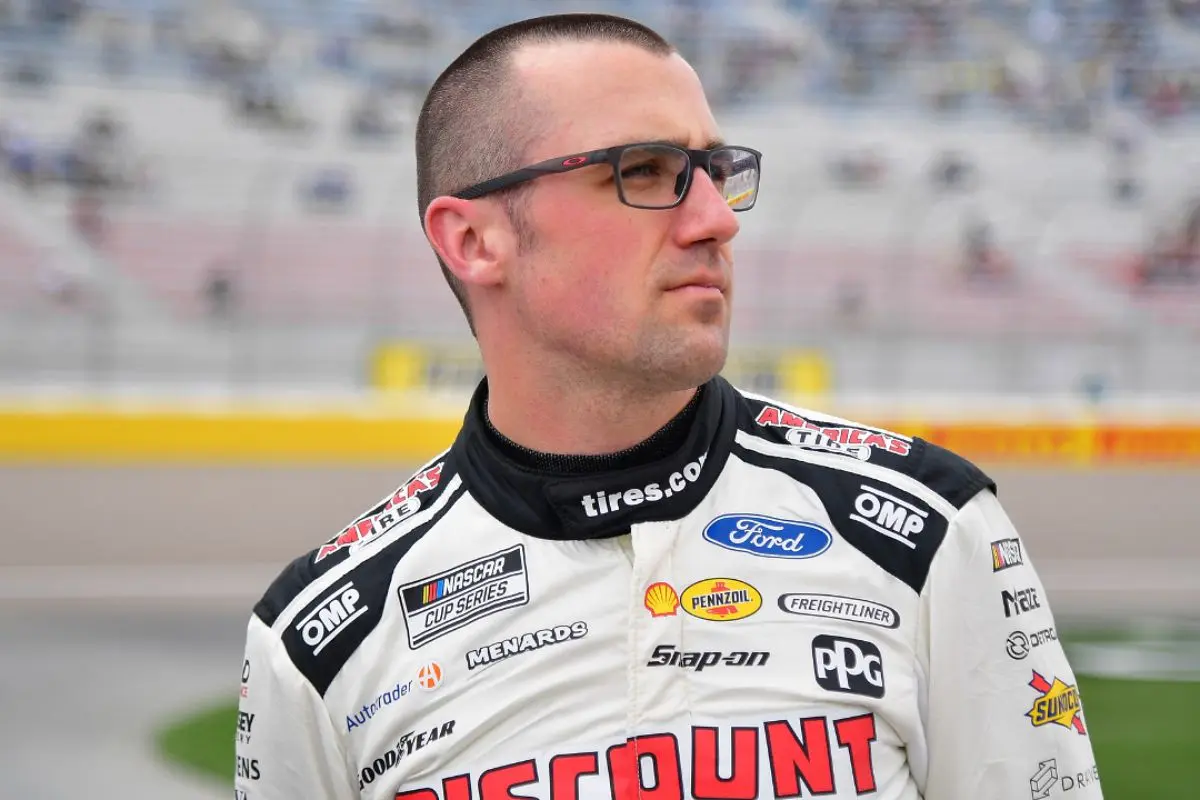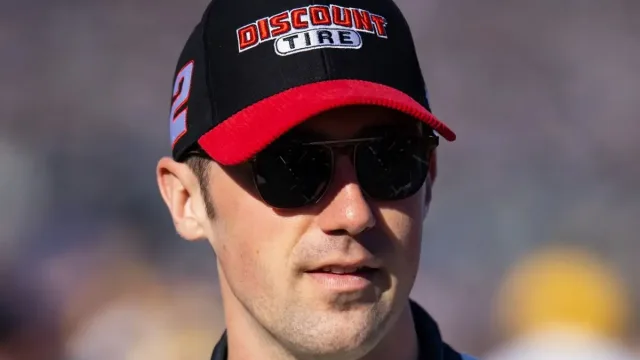Key Takeaways
- Austin Cindric received a 50-point deduction and a $50,000 fine but avoided suspension after his aggressive move against Ty Dillon.
- Kyle Busch and Denny Hamlin criticized the leniency of Cindric’s penalty, highlighting perceived favoritism in NASCAR’s enforcement of rules.
- Comparisons to past suspensions reveal Cindric’s penalty was less severe than those given to Bubba Wallace and Chase Elliott for similar actions.
- The incident’s context, occurring on a road course without immediate caution, influenced NASCAR’s decision to impose a points penalty instead of a suspension.
- Speculation regarding the waiver rule’s impact on Cindric’s penalty suggests it may have played a role in preserving his playoff eligibility.
The Incident and NASCAR’s Ruling
At Circuit of The Americas, a notable incident occurred involving Austin Cindric and Ty Dillon, prompting a swift reaction from NASCAR.
Cindric’s aggressive right-hook move against Dillon raised questions about his intentions and whether it constituted a breach of racing ethics. NASCAR responded with a 50-point deduction and a $50,000 fine, but surprisingly, Cindric was not suspended.
This decision spurred mixed fan reactions, with some viewing the penalty as too lenient compared to past incidents that warranted suspensions. Others argued that NASCAR’s ruling reflected a commitment to driver safety.

The Backlash and Kyle Busch’s Criticism
Controversy often breeds debate, and the reaction to NASCAR’s ruling on Austin Cindric’s aggressive tactic at Circuit of The Americas exemplifies this phenomenon.
The backlash reasons stemmed from perceptions of favoritism, as many felt Cindric received a lenient penalty compared to past incidents.
“I do not agree with the call there… I mean, I’ve been guilty of it before, and I’ve been sat out of it before. So, you know, maybe it’s all in who your last name is.” – (Kyle busch)
His assertion of favoritism resonated with fellow drivers, including Denny Hamlin, who cited previous right-hook incidents that led to harsher penalties.
The inconsistency in penalty enforcement has raised questions about NASCAR’s commitment to fair play, prompting widespread driver reactions that call into question the integrity of the sport’s regulatory framework.
Dale Earnhardt Jr. Defends NASCAR’s Decision
While many drivers, including Kyle Busch, voiced strong criticisms regarding NASCAR’s handling of Austin Cindric’s aggressive tactic, Dale Earnhardt Jr. offered a contrasting viewpoint.
On his podcast, Dale Jr. emphasized that NASCAR’s decision-making process is subtle and context-driven. He asserted, “NASCAR doesn’t look at these things black and white,” emphasizing the importance of evaluating each incident individually.
“I understand what some of the drivers are saying as far as Kyle Busch and Denny are like, ‘Hey man, right hook is a right hook I don’t care… It should all be treated the same.’… NASCAR doesn’t look at these things black and white. NASCAR doesn’t look at it cut and dried, simple, and yes or no. They don’t, and they haven’t in the past.” – (dale jr.)
Dale Jr.’s perspective aligns with NASCAR’s official stance, which acknowledges the distinctiveness of each situation. Factors such as track type, race circumstances, and the severity of the crash are integral to understanding penalty implications.
“I’m not talking s— about NASCAR here—but they’ll yellow flag something that warrants a yellow flag. It might draw one with 10 laps to go, and that same incident might not bring out a yellow at all 10 laps into the race.” – (dale jr.)
This analytical approach aims to cultivate a fair environment, despite varying driver reactions to the incident, ultimately highlighting the complexities within NASCAR’s regulatory framework.
Comparing Past Suspensions – Did Cindric Get Off Easy?
How does Austin Cindric’s recent penalty compare to past suspensions in NASCAR? His punishment seems relatively lenient when juxtaposed with earlier penalties, particularly for similar infractions. Importantly, Bubba Wallace and Chase Elliott received one-race suspensions for actions leading to severe crashes at high-speed tracks.
Cindric’s action, occurring on a road course, resulted in no immediate caution, influencing NASCAR’s decision to impose a points penalty instead of a suspension. This has prompted varied fan reactions regarding rule consistency and racing integrity.
“The reason we landed on the points and fine is we take every situation and every violation as its own unique incident. Sure, we do look at past instances to help educate ourselves on how we should handle each subsequent one, but each incident is very different.” – (Mike Forde)
| Driver | Incident Description | Penalty Type |
|---|---|---|
| Bubba Wallace | Right-hooking Kyle Larson | 1 Race Suspension |
| Chase Elliott | Wrecking Denny Hamlin | 1 Race Suspension |
| Austin Cindric | Intentional contact with Dillon | Points Penalty |
Ty Dillon’s insistence on a suspension raises further questions about driver safety and fairness in NASCAR.
“I was wrecked intentionally by him, hooked right just like Chase and Denny and Bubba’s deal. He better be suspended next week.” – (Dillon)

Did NASCAR’s Waiver Rule Play a Role?
Did NASCAR’s waiver rule influence the decision regarding Austin Cindric’s penalty? Analysts speculated that the revised waiver rule played a crucial role, as suspensions lead to forfeited playoff points.
By opting for a points penalty instead, NASCAR preserved Cindric’s eligibility for the post-season, mitigating potential playoff point impact.
While Dale Earnhardt Jr. dismissed the notion that the waiver rule directly influenced this decision, many fans suspect it may have protected Team Penske from driver eligibility concerns.
“I hate to assume that. I don’t think that that’s true.” – (dale jr.)
This ruling has set a precedent; future penalties for similar infractions may be scrutinized under the same lens. The motorsports community now watches closely, questioning the fairness of suspensions and whether NASCAR’s interpretation will remain consistent moving forward.

News in Brief: Austin Cindric’s Controversial Move
Austin Cindric’s recent actions have ignited a debate within the NASCAR community regarding fairness and consistency in rulings. While some, like Kyle Busch, express frustration over perceived leniency, others, including Dale Earnhardt Jr., support NASCAR’s decision as appropriate.
The comparison to past suspensions raises questions about equity in enforcement. Moreover, NASCAR’s waiver rule may have influenced Cindric’s outcome. Ultimately, this incident highlights the ongoing challenge of maintaining integrity while balancing competitive interests in motorsport.
ALSO READ: Passionate NASCAR Fans Demand Suspension for Austin Cindric as Dangerous Moves Go Unpunished
